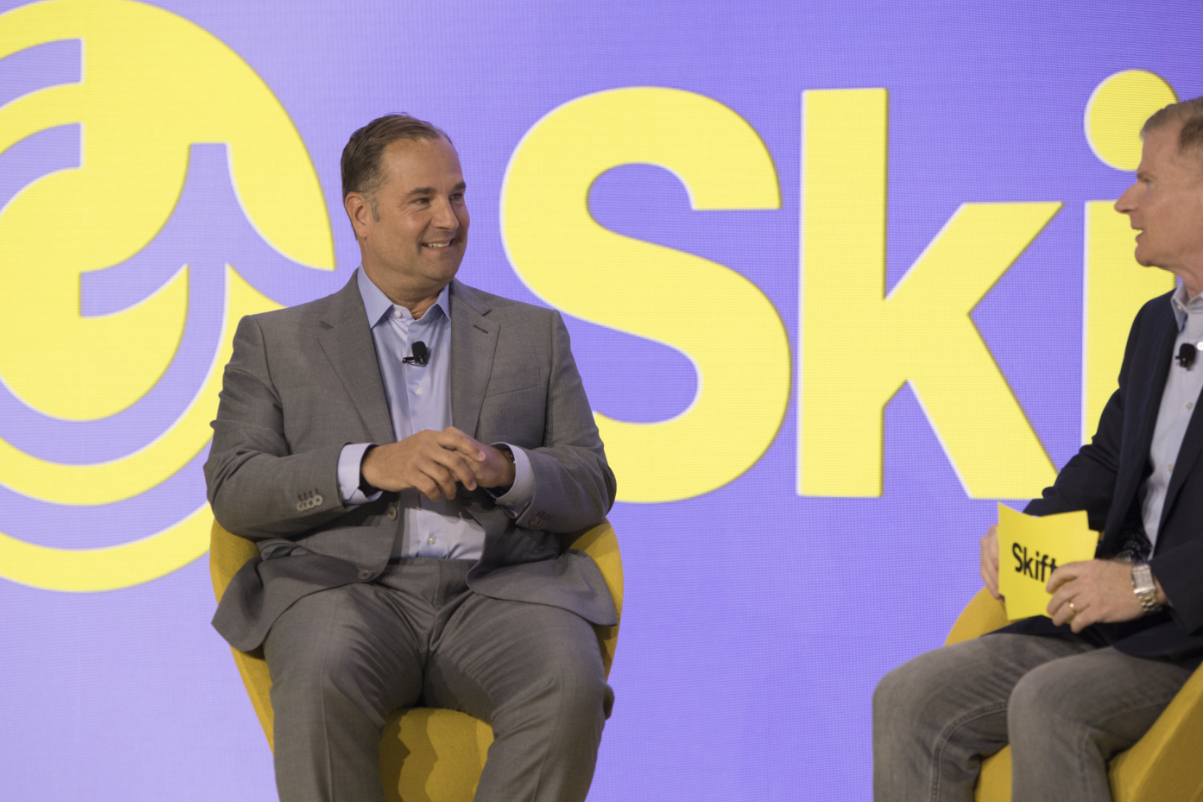Not everyone is happy that Florida's new tourism head honcho was hired without much research
Skift Take
The day after the CEO of the state's top tourism agency announced he was stepping down, board members quickly handpicked his replacement.
There was only one problem. Picking Visit Florida's chief marketing officer Will Seccombe to head the agency without doing a national search could upset the agency's main funders -- state legislators and Gov. Rick Scott.
Visit Florida' solution: give a recruiting firm a no-bid, $45,000, two-month contract to conduct a nationwide CEO search. The firm, Minnesota-based Searchwide, just happened to be the same one that brought in Seccombe five years earlier.
Now, a state watchdog group is slamming the agency's recruiting process, saying it suggests either favoritism, government waste, or both.
The developments highlight the awkward relationship between Visit Florida's board and elected state officials who control so much of the agency's budget. While the board appears set to hire Seccombe, its handling of the transition process could lead to more scrutiny from the very lawmakers who control the agency's purse strings
"Visit Florida claims to be an equal opportunity employer, but it appears they have rigged their hiring process to unfairly benefit the acting president," said Dan Krassner, executive director for Integrity Florida, which advocates for tougher ethics laws, and is now questioning whether the swift recruiting process is completely open and fair.
Searchwide, which signed the contract on Oct. 5, did not respond to requests for comments. The agency is expected to complete its nationwide search by early December.
Experts in the field of executive talent recruitment say that such a short period is abnormal for a national CEO search.
"That's a really aggressive timetable," said Theresa Rohr, senior associate at Stanton Chase International, a global executive search firm with offices in San Francisco. "For a CEO, very aggressive."
While Searchwide is a top name in the hospitality industry, Visit Florida has used it only once before: to recruit Seccombe in 2007.
Visit Florida's former CEO, Chris Thompson, who left in October to head up a national tourism agency, defended the decision to give the contract to Searchwide. While Seccombe may have an advantage as an "incumbent," all candidates will be considered, he said.
He pointed out that Searchwide also had been retained by Visit Orlando for an executive search this year.
"It is absolutely in no way, shape or form going through the motions," Thompson said. "It is a legitimate search."
But Visit Orlando offers a useful comparison. The Central Florida tourism agency hired Searchwide to do a national search for a CEO back in May. A spokesman said the organization doesn't expect the process to be completed until January. Several other companies that have contracted with Searchwide have given the company more than six months to complete a national search.
When Thompson announced he was leaving, some board members, in an emergency meeting, quickly decided to promote Seccombe to the $225,000-a-year CEO position.
Doing so would allow the state-funded agency to have a permanent CEO in place before Scott and the Legislature began making crucial decisions about how much taxpayer money the organization should get next year.
"I don't think we need to put the time, money and effort into a nationwide search," said John Perez, a hotel executive who sits on Visit Florida's board. "I think we have a very competent replacement for Chris, in Will, already in place."
But some board members were concerned about the perception of appointing a new CEO without consulting the Legislature or conducting an official search -- something they believed Scott, Florida's businessman-turned-governor, would expect.
Visit Florida relies on the Florida Legislature for a large chunk of its operating revenue. The public-private organization bolsters its budget with free advertising from private partners, but its cash revenue is overwhelmingly taxpayer-funded. That means the Legislature and governor hold sway over the future finances of the organization.
Visit Florida has been a darling of Scott and the Legislature in recent years. As most state agencies weathered drastic budget cuts in the last two years, Visit Florida saw its taxpayer funding more than double to $54 million.
At least one Visit Florida board member said the Legislature feels it should have a say in how the agency conducts because of lawmakers' generosity.
"I think if we've all learned anything from our past, it is that there is a certain entitlement from the Legislature because there's so much funding that they now allow us to have," said Carol Dover, president of the Florida Restaurant and Lodging Association.
The organization should "dot all our I's and cross all our T's" before appointing Seccombe as CEO, she warned.
(c)2012 The Miami Herald. Distributed by MCT Information Services
![]()




